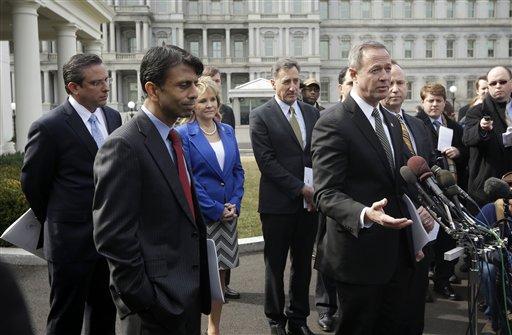You only get one chance to educate your child.
In Louisiana, if a child is in a poorly rated or failing public school, that child now has the opportunity despite family income to attend an alternate private or parochial school of his or her choice.
Last spring, Gov. Bobby Jindal signed the Louisiana Scholarship Program into law, which resulted in 10,000 applicants and more than 5,000 scholarships granted from schools rated C, D or F to better alternatives than their underperforming public schools.
In November 2012, State District Court Judge Tim Kelley ruled the program to be acceptable, but the funding mechanism, the Minimum Foundation Program, unconstitutional.
The proposal to permit children in poorly performing public schools to attend a private school of their choice has met opposition from the two statewide teacher unions and the School Board Association.
The Louisiana Scholarship Program funding mechanism will finally be decided by the Louisiana Supreme Court in a matter of days.
The “survival” suit brought by the education establishment has revealed the true nature of the unions.
The suit “is the latest study in how far the education bureaucracy will go to protect its money and power and resist the competition that comes from school choice, even when it means forcing kids to return to schools that steal their futures,” The Wall Street Journal noted last month.
The suit comes as no surprise.
This past summer, the Louisiana Association of Educators issued warnings to scholarship schools threatening litigation unless the schools formally promised the Louisiana Department of Education that they would not be accepting scholarship students.
The opposition to school voucher programs by student unions is nothing new.
Clint Bolick, vice president of Litigation at the Goldwater Institute in Arizona, pointed out, “In over two decades of school choice advocacy, I’ve never seen thuggery of this magnitude. What the unions can’t accomplish in the courtroom (or the Legislature), they’re trying to achieve through bullying schools whose only offense is offering educational opportunities to children who need them.”
Kelley ruled the program unconstitutional because of two of four statutes in the Act 2 law.
When a trial court judge declares a state law unconstitutional, the law bypasses the appeals court and goes straight to the Louisiana Supreme Court.
Unsurprisingly, the Louisiana Federation of Teachers, the Louisiana Association of Educators and the Louisiana School Boards Association also filed a cross appeal stating the remaining two statutes were also unconstitutional.
Despite the opposition’s best efforts to slow and stop the program, the Jindal administration will win no matter which way the ruling goes.
Justices will hear arguments March 19 on the lower court’s ruling regarding the funding mechanism for the scholarship program.
If overturned, Jindal gets the MFP funding mechanism he wants, and the program continues. If upheld as unconstitutional, a different means of support will be found because it is the mechanism and not the program on the line.
In the meantime, the program’s progress is not slowed.
The second annual Education Summit will be held April 19 in Baton Rouge at the Crowne Plaza with keynote speaker Condoleezza Rice. The scholarship program is also projected to double this year alone.
Either way, the opposition will fail and the Jindal administration and children using the program win with or without their preferred source of funding.
Landon Mills is a 21-year-old international studies senior from Sunshine, La.








